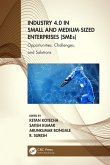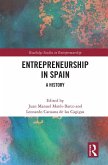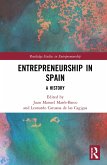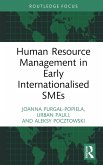Thomas Thinandavha Munyai, Boysana Lephoi Mbonyane, Charles Mbohwa
Productivity Improvement in Manufacturing SMEs
Application of Work Study
Thomas Thinandavha Munyai, Boysana Lephoi Mbonyane, Charles Mbohwa
Productivity Improvement in Manufacturing SMEs
Application of Work Study
- Broschiertes Buch
- Merkliste
- Auf die Merkliste
- Bewerten Bewerten
- Teilen
- Produkt teilen
- Produkterinnerung
- Produkterinnerung
This book focuses on the application of workstudy in productivity of manufacturing SMEs locally and abroad and also explores various industrial problems which face manufacturing SMEs in developing and underdeveloped countries in the rest of the world.
Andere Kunden interessierten sich auch für
![Applying a Systems Thinking Approach to the Construction Industry Applying a Systems Thinking Approach to the Construction Industry]() Michael SiebertApplying a Systems Thinking Approach to the Construction Industry71,99 €
Michael SiebertApplying a Systems Thinking Approach to the Construction Industry71,99 €![Human Resource Management in Early Internationalised SMEs Human Resource Management in Early Internationalised SMEs]() Joanna Purgal-PopielaHuman Resource Management in Early Internationalised SMEs32,99 €
Joanna Purgal-PopielaHuman Resource Management in Early Internationalised SMEs32,99 €![Industry 4.0 in Small and Medium-Sized Enterprises (SMEs) Industry 4.0 in Small and Medium-Sized Enterprises (SMEs)]() Industry 4.0 in Small and Medium-Sized Enterprises (SMEs)126,99 €
Industry 4.0 in Small and Medium-Sized Enterprises (SMEs)126,99 €![Entrepreneurship in Spain Entrepreneurship in Spain]() Entrepreneurship in Spain76,99 €
Entrepreneurship in Spain76,99 €![Entrepreneurship in Spain Entrepreneurship in Spain]() Entrepreneurship in Spain195,99 €
Entrepreneurship in Spain195,99 €![Human Resource Management in Early Internationalised SMEs Human Resource Management in Early Internationalised SMEs]() Joanna Purgal-PopielaHuman Resource Management in Early Internationalised SMEs68,99 €
Joanna Purgal-PopielaHuman Resource Management in Early Internationalised SMEs68,99 €![Local Clusters in Global Value Chains Local Clusters in Global Value Chains]() Local Clusters in Global Value Chains46,99 €
Local Clusters in Global Value Chains46,99 €-
-
-
This book focuses on the application of workstudy in productivity of manufacturing SMEs locally and abroad and also explores various industrial problems which face manufacturing SMEs in developing and underdeveloped countries in the rest of the world.
Hinweis: Dieser Artikel kann nur an eine deutsche Lieferadresse ausgeliefert werden.
Hinweis: Dieser Artikel kann nur an eine deutsche Lieferadresse ausgeliefert werden.
Produktdetails
- Produktdetails
- Verlag: Taylor & Francis Ltd
- Seitenzahl: 374
- Erscheinungstermin: 29. August 2022
- Englisch
- Abmessung: 177mm x 253mm x 25mm
- Gewicht: 708g
- ISBN-13: 9781032402031
- ISBN-10: 1032402032
- Artikelnr.: 65829231
- Herstellerkennzeichnung
- Libri GmbH
- Europaallee 1
- 36244 Bad Hersfeld
- gpsr@libri.de
- Verlag: Taylor & Francis Ltd
- Seitenzahl: 374
- Erscheinungstermin: 29. August 2022
- Englisch
- Abmessung: 177mm x 253mm x 25mm
- Gewicht: 708g
- ISBN-13: 9781032402031
- ISBN-10: 1032402032
- Artikelnr.: 65829231
- Herstellerkennzeichnung
- Libri GmbH
- Europaallee 1
- 36244 Bad Hersfeld
- gpsr@libri.de
Thomas Munyai is the lecturer and Head of department in Operations Management at Tshwane University of Technology, Pretoria South Africa. Currently He is a Doctoral student in Engineering Management at University of Technology with main focus on development of model to empower small business to enhance productivity in South Africa. He hold and MBA from UNISA, BSc (Hons.) Mathematical Statistics (Wits university), and BSc. in mathematics and statistics (University of Limpopo). He has 20 years' experience in manufacturing and food processing industry, as factory manager, operations manager, product and sales manager, procurement manager. His professional memberships include the South African Production and Inventory Control Society (SAPICS). His field of interest are optimization though linear and non-linear modelling, statistics, mathematics, process mapping modelling; information and technology and manufacturing technology. Boysana Mbonyane is a senior lecturer in the Department of Operations Management at the University of South Africa, Pretoria, South Africa. Currently, he is a doctoral student in Engineering Management at the University of Johannesburg with a main focus on the development of a framework for efficiency in relation to physical and technological capital to yield continuous growth in small business in Gauteng, South Africa. He completed his master's degree in Business Leadership in 2014 and a master of Technology degree in Business Administration in 2007 at the University of South Africa (UNISA). He also completed his BCom (hons) in Industrial Psychology at the University of Johannesburg in 2006 and a BTech in Business Administration in 1999 at the University of South Africa. His undergraduate qualifications are a national diploma in Organization and Work Study, completed in 1995 at Technikon Witwatersrand. He spent 10 years in the mining industry and 10 years as a lecturer at the University of Johannesburg. Boysana joined the University of South Africa, 01 February, 2010. Charles Mbohwa is a Full Professor and Vice-Dean: Postgraduate Studies, Research and Innovation at University of Johannesburg's (UJ) Faculty of Engineering and the Built Environment (FEBE). He is a Project Leader of several initiative on renewable technology as well as projects on Platinum Group Metals and HFCT research project, South African and international collaboration. His research activities are in renewable energy sustainability. He has supervised HFCT Master and doctoral research studies in HFCT. He has supervised several post-graduate students. He has taken part in organising many International Conferences and has managed several research projects involving collaboration with partners in the USA, Brazil, China, Norway, United Kingdom, Germany, United Nation and with many African countries. He is an established researcher and professor in operations management, manufacturing systems, green supply chain management and sustainability engineering, optimization, and his specializations include renewable energy systems, and bio-fuel feasibility.
Preface
Chapter 1: The Background of Manufacturing SMEs
Chapter 2: Work Study and Productivity Theory: Groundwork Theories
Chapter 3: Effectiveness versus Efficiency in Manufacturing SMEs
Chapter 4: Factors Influencing Productivity in Manufacturing SMEs
Chapter 5: Identifying the Environment for Manufacturing SMEs
Chapter 6: Work Study (WS) Techniques: Method Study
Chapter 7: Work Study (WS) Techniques: Work Measurement
Chapter 8: The Impact of Work Study on Physical Capital in Relation to Productivity of Manufacturing SMEs
Chapter 9: The Impact of Work Study on Technological Capital in Relation toProductivity of Manufacturing SMEs
Chapter 10: The Impact of Management in Relation to Productivity to Manufacturing SMEs
Chapter 11: Work Study Report Writing
Chapter 12: Conclusions and Further Research
Appendices
References
Chapter 1: The Background of Manufacturing SMEs
Chapter 2: Work Study and Productivity Theory: Groundwork Theories
Chapter 3: Effectiveness versus Efficiency in Manufacturing SMEs
Chapter 4: Factors Influencing Productivity in Manufacturing SMEs
Chapter 5: Identifying the Environment for Manufacturing SMEs
Chapter 6: Work Study (WS) Techniques: Method Study
Chapter 7: Work Study (WS) Techniques: Work Measurement
Chapter 8: The Impact of Work Study on Physical Capital in Relation to Productivity of Manufacturing SMEs
Chapter 9: The Impact of Work Study on Technological Capital in Relation toProductivity of Manufacturing SMEs
Chapter 10: The Impact of Management in Relation to Productivity to Manufacturing SMEs
Chapter 11: Work Study Report Writing
Chapter 12: Conclusions and Further Research
Appendices
References
Preface
Chapter 1: The Background of Manufacturing SMEs
Chapter 2: Work Study and Productivity Theory: Groundwork Theories
Chapter 3: Effectiveness versus Efficiency in Manufacturing SMEs
Chapter 4: Factors Influencing Productivity in Manufacturing SMEs
Chapter 5: Identifying the Environment for Manufacturing SMEs
Chapter 6: Work Study (WS) Techniques: Method Study
Chapter 7: Work Study (WS) Techniques: Work Measurement
Chapter 8: The Impact of Work Study on Physical Capital in Relation to Productivity of Manufacturing SMEs
Chapter 9: The Impact of Work Study on Technological Capital in Relation toProductivity of Manufacturing SMEs
Chapter 10: The Impact of Management in Relation to Productivity to Manufacturing SMEs
Chapter 11: Work Study Report Writing
Chapter 12: Conclusions and Further Research
Appendices
References
Chapter 1: The Background of Manufacturing SMEs
Chapter 2: Work Study and Productivity Theory: Groundwork Theories
Chapter 3: Effectiveness versus Efficiency in Manufacturing SMEs
Chapter 4: Factors Influencing Productivity in Manufacturing SMEs
Chapter 5: Identifying the Environment for Manufacturing SMEs
Chapter 6: Work Study (WS) Techniques: Method Study
Chapter 7: Work Study (WS) Techniques: Work Measurement
Chapter 8: The Impact of Work Study on Physical Capital in Relation to Productivity of Manufacturing SMEs
Chapter 9: The Impact of Work Study on Technological Capital in Relation toProductivity of Manufacturing SMEs
Chapter 10: The Impact of Management in Relation to Productivity to Manufacturing SMEs
Chapter 11: Work Study Report Writing
Chapter 12: Conclusions and Further Research
Appendices
References








